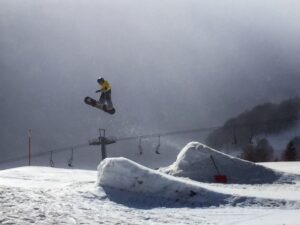Winter Sports: Spotting Concussions

Carving your way through the Aspens at 40 mph means there’s a good chance of a head injury. Winter sports are dangerous fun. Risk is a part of life and without it how would you know you were alive?
Snowboarders and skiers take risks for the sport they love, but minimizing that risk lets us keep doing the things we love for many many years.
First off, it’s incredibly important to wear your helmet. One study reports that the risk of a head injury in winter sports is reduced by up to 60% when wearing a helmet.
These days it’s not hard to find a good one and your snowboarding ensemble wouldn’t be complete without a slick helmet and some space goggles. Check it often often to make sure it’s still going to protect your skull when you impact a tree doing 40 mph.
Gear isn’t cheap but you should always budget for replacing Personal Protective Equipment (PPE) when it becomes old, worn out, or damaged.
We’re big on PPE around here at Mountain Man Medical. We like to do dangerous things too, and we want to keep doing those dangerous things as long as possible. A healthy intact brain is great for longevity…
Spotting Concussions
If you are worried someone in your party has taken a bad hit to the head, here are some things to look for:
- Clumsy awkward movement
- Dazed, or stunned appearance
- Easily confused by simple instructions
- Slow answering of questions
- Mood, behavior, or personality changes
When talking to the casualty, they might report the following:
- Headache
- Feeling “Off”
- Memory problems
- Problems with dizziness, unbalanced and reporting blurred or double vision.
- Head feels fuzzy, or groggy
- Nausea and/or vomiting
- Sensitivity to light or noise
If you know of someone in your party who has received a head injury, but appears to be ok, make sure to keep an eye on them as symptoms can worsen over time. If you notice any of the symptoms listed before, even days after, send a call to ski patrol or get them checked out at the ER. Better to be safe than end up with soup for brains.
Can the Victim Go to Sleep?
I am often asked if there is risk of the casualty not waking up if allowed to go to sleep. This is a myth that has been around for a long time and there’s no research or evidence to support it.
But that doesn’t mean we just let them “Sleep it off.” If someone has been knocked out, it’s always a good idea to get them seen at a hospital to make sure there isn’t anything dangerous going on.
If you would like to know more about basic trauma medicine, check out our free online course that will teach you the basics.

Probably know this, but all concussions are associated with a period in which the person stops breathing, minor concussion, probably won’t notice, moderate to severe concussion, maybe they will start to breath on their own, maybe not. You don’t need to understand the pathophysiology occurring, you just need to notice the person isn’t breathing. Open the airway, a few breaths (with a barrier so you’re not kissing strangers), they may start breathing on their own by just opening their airway, or after a few breaths from you.
John and Jane Q’s with a full-on American Heart Association CPR class and a “stop the bleed class”, open airway, rescue breathing, (doesn’t teach suctioning, which is a mandatory capability, we need to be able to main a clear airway to level of glottis (where trachea (windpipe) and esophagus (food pipe) meet), CPR and obstructed airway for adult, child and baby. Stop the Bleed (full on coTCCC for non-medical peoples, the book is already in print. With this knowledge, some tools and the courage to act, through the almost unique opportunity in all of medicine, for near immediate intervention, can stop processes and change outcomes, opportunities frequently lost by the time the calvary gets there. Going back to concussions, if you ever knew somebody with a head injury, now think of a chance for giving them back their brain, and perhaps their life. That is what I call 0 Responders can do.